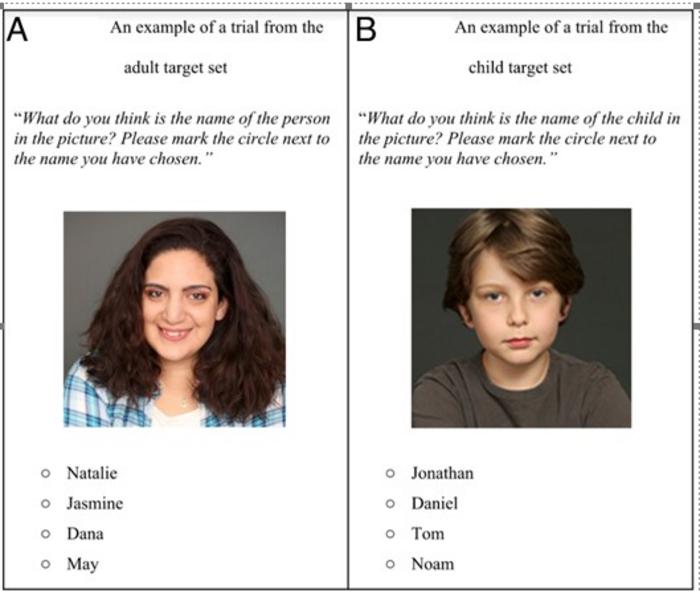A new study reveals that a person’s name may influence their facial appearance over time. Using human perception tests and machine learning, the research found that adults’ faces can be matched to their names more accurately than chance. However, this effect is not found in children’s faces, suggesting that face-name congruence develops as individuals age rather than being present from birth. This “self-fulfilling prophecy” highlights how social expectations can subtly shape physical appearance. The findings have implications for psychology, sociology, and artificial intelligence, demonstrating the interaction between social factors and identity formation.

Credit: Authors
A new study reveals that a person’s name may influence their facial appearance over time. Using human perception tests and machine learning, the research found that adults’ faces can be matched to their names more accurately than chance. However, this effect is not found in children’s faces, suggesting that face-name congruence develops as individuals age rather than being present from birth. This “self-fulfilling prophecy” highlights how social expectations can subtly shape physical appearance. The findings have implications for psychology, sociology, and artificial intelligence, demonstrating the interaction between social factors and identity formation.
The debate about the meaning of stereotypes is longstanding. Do they carry an inherent, hereditary factor, where, for example, boys and girls differ biologically, or is it the influence of social expectations? While the effects of heredity are relatively straightforward to measure, isolating and empirically measuring the impact of the environment is much more challenging. A new study led by Prof. Ruth Mayo at the Hebrew University, together with Dr. Yonat Zwebner, Dr. Moses Miller, Prof. Jacob Goldenberg of Reichman University’s Arison School of Business, and Noa Grobgeld from the Hebrew University, has made a groundbreaking achievement by demonstrating the significant impact of social structuring. It was found that this influence is so powerful that it can even change a person’s facial appearance.
The study has uncovered intriguing evidence that a person’s name may influence their facial appearance as they age. This research, which combines human perception tests and advanced machine learning techniques, offers new insights into the complex interplay between social expectations and self-identity development.
Building on previous findings that adults’ faces can be matched to their names at above-chance levels, Prof. Mayo’s team sought to determine whether this face-name congruence is present from birth or develops over time.
Key findings include:
Both adults and children could accurately match adult faces to their names above chance levels.
Neither adults nor children could match children’s faces to their names above chance levels.
Machine learning algorithms found greater similarity between facial representations of adults sharing the same name compared to those with different names.
This name-based facial similarity was not observed among children.
Artificially aged images of children’s faces did not exhibit the face-name matching effect seen in actual adult faces.
“These results suggest that the congruence between facial appearance and names is not innate, but rather develops as individuals mature,” explains Prof. Mayo. “It appears that people may alter their appearance over time to conform to cultural expectations associated with their name.”
This “self-fulfilling prophecy” highlights the profound impact that social factors have. The study suggests that even seemingly arbitrary social tags like names can shape our appearance in subtle yet measurable ways.
The research raises fascinating questions about identity formation and the long-term effects of social expectations on individual development.
Prof. Mayo emphasizes that further research is needed to fully understand the mechanisms behind this face-name matching effect and its broader implications. However, this study represents a significant step forward in understanding how social factors shape who we become.
Journal
Proceedings of the National Academy of Sciences
Method of Research
Observational study
Subject of Research
People
Article Title
Can names shape facial appearance
Article Publication Date
15-Jul-2024



